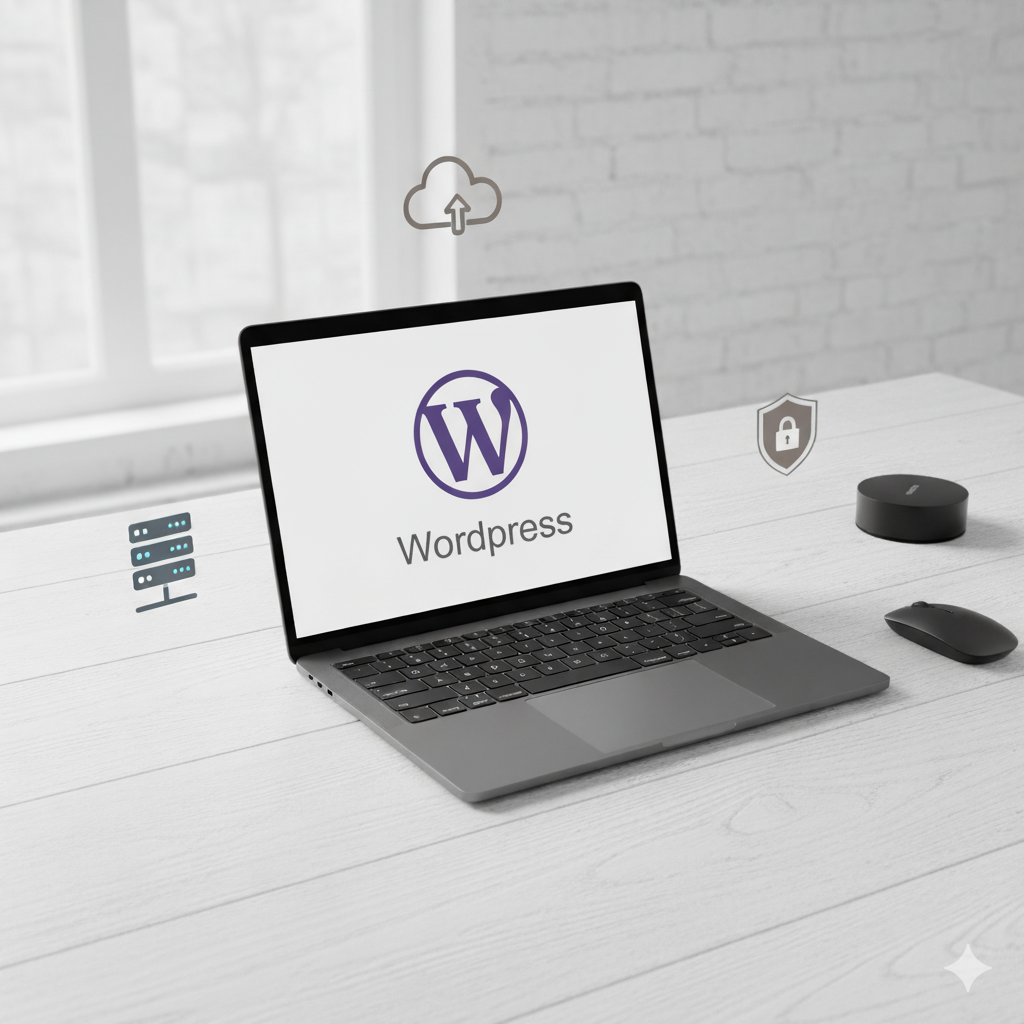WordPress vs Shopify for Small Businesses (2026 Comparison)
WordPress vs Shopify — which one is better for small businesses in 2026? Check the pros, cons, and costs before choosing your website builder.

If you run a small business, chances are you’ve already heard about WordPress and Shopify.
Both these promise to help you build a professional website without writing a single line of code.
However, when you start comparing them side by side, you realize they’re very different tools. Each one is designed for a different kind of business owner.
In this post, I’ll break down WordPress vs Shopify from a small business perspective. We will consider the cost, ease of use, flexibility, scalability, and long-term growth — without the tech jargon.
1. What’s the Core Difference Between WordPress and Shopify?
Let’s start by reviewing the basics of both.
- WordPress is an open-source website platform. You can build any kind of website — blog, business site, portfolio, or even an online store (for online store, you will need the WooCommerce plugin).
- Shopify is a hosted eCommerce platform designed specifically for selling products.
So while both can run a small business website, the way they do it and how much control you get — is very different.
2. Ease of Use
If you want to build your site quickly and avoid technical setup, Shopify is the perfect choice.
Shopify feels like renting a ready-made store in a mall. You sign up, pick a template, add your products. Within few hours, you can start selling. It’s that easy.
WordPress, on the other hand, is more like owning the land and building your own store. It takes some setup. You will need to do the installation of WordPress on the webhost before you chose the theme. But you get full control over the layout and features.
My Recommendation:
If you’re not tech-savvy and just want to sell products, Shopify will make your life easier.
But if you enjoy tweaking things, WordPress gives you far more room to grow.
✅ Winner: Shopify (for ease of use)
3. Customization and Flexibility
This is where WordPress shines.
With WordPress, one can change the code and tweak the functionalities. Additionally, you can add plugins for almost anything:
- Booking systems
- SEO tools
- Memberships
- Digital downloads
- Payment gateways
- Custom post types
It’s like having an open toolbox — you can shape your site however you want.
Shopify, by comparison, is more controlled. You can customize your store through themes and apps, but you can’t touch the underlying structure much. It’s intentionally limited to keep things simple and secure.
✅ Winner: WordPress (for flexibility)
4. eCommerce Capabilities
Now let’s compare the main feature that small businesses require that is the eCommerce capabilities.
WordPress uses WooCommerce, a free plugin that turns your site into a fully functional online store. It supports everything from digital products to subscriptions and physical items.
You can even connect payment gateways like Stripe, PayPal, or Square.
On the other hand, Shopify is built exclusively for eCommerce. Everything — inventory, shipping, taxes, checkout — just works out of the box. And if you sell across multiple channels (like Instagram or Amazon), Shopify integrates seamlessly.
In short:
- WooCommerce is powerful but requires configuration.
- Shopify is plug-and-play but less customizable.
✅ Winner: Shopify (for simplicity in selling)
5. Design and Themes
Design is where first impressions are made.
Shopify’s templates look modern and professional right out of the box. They’re optimized for conversions, which matters if your goal is sales.
However, Shopify premium themes can be expensive — often $180+, although they have free ones as well.
WordPress gives you thousands of free and paid themes, from marketplaces like ThemeForest and Kadence. You can make it look like anything — a local café, an online shop, or a service brand.
The catch? You might need a bit more effort to get it just right.
✅ Winner: WordPress (for creative freedom)
6. Cost Comparison
Let’s break down the real cost — not just the marketing numbers.
| Platform | Initial Cost | Other Ongoing Cost | eCommerce Fees | Notes |
|---|---|---|---|---|
| WordPress | ~$3–10/month for hosting | $0 (self-hosted) | 2.9% (via Stripe/PayPal) | Requires domain + theme/plugins |
| Shopify | $29/month (“Basic” Plan) | Included | 2.9% + 30¢ per transaction | Custom domain extra, everything else included |
Shopify may seem pricier. But remember — with Shopify, hosting and maintenance are included and you don’t have to worry about any technical details on ongoing basis once your store is set up. With WordPress, the cost is low but some level of ongoing maintenance may be required. You still can save money in the long-term.
✅ Winner: WordPress (for budget-conscious businesses)
7. Scalability and Growth
Both platforms can scale, but differently.
Shopify scales vertically — as your sales grow, you upgrade to higher plans ($79, $299, etc.) for more features.
WordPress scales horizontally — you add more plugins, optimize hosting, and customize your setup.
If you plan to grow slowly, WordPress gives you flexibility without recurring jumps in cost.
But if you want a managed, no-fuss growth path, Shopify feels safer.
✅ Winner: Tie (depends on your business model)
8. SEO and Marketing Tools
Search visibility is the lifeblood of small business websites.
WordPress is the SEO king — plugins like Rank Math and Yoast SEO let you control meta tags, schema, and page optimization in depth.
Shopify includes basic SEO tools but is less flexible about URLs and sitemaps.
For content marketing, WordPress wins again. Blogging on Shopify feels limited compared to WordPress’s powerful editor and plugin ecosystem.
✅ Winner: WordPress (for SEO and content marketing)
9. Maintenance and Support
Shopify handles updates, security, and backups for you. You don’t touch any code or files. That peace of mind is worth something.
With WordPress, you’re responsible for updates, plugin management, and backups. Many hosts (like Bluehost or WP Engine) automate these tasks, but it’s still your job to oversee them.
✅ Winner: Shopify (for maintenance simplicity)
10. Final Verdict: Which Should You Choose?
Let’s do a recap:
| Feature | Winner |
|---|---|
| Ease of Use | Shopify |
| Flexibility | WordPress |
| eCommerce Power | Shopify |
| Design Options | WordPress |
| Cost Efficiency | WordPress |
| SEO & Content | WordPress |
| Maintenance | Shopify |
So here’s the honest summary:
- Choose WordPress if you want full control, better SEO, and long-term flexibility. It’s ideal for service-based businesses, content creators, and hybrid websites that do more than just sell.
- Choose Shopify if your main goal is to sell products and you don’t want to deal with tech setup. It’s the fastest way to launch an online store and keep it running smoothly.
Both are excellent platforms — it just depends on where you want to focus your time and energy.



